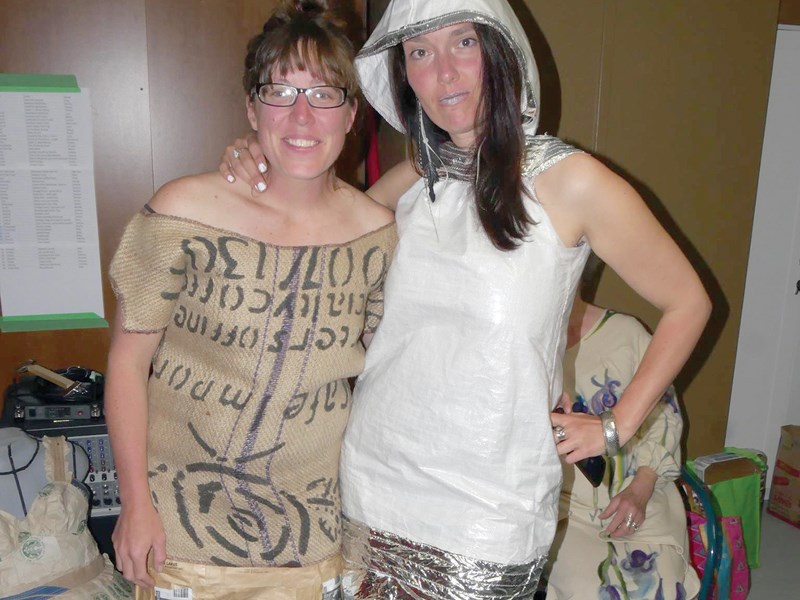This is a time of the year when deals abound. But before you consider indulging in a shopping spree, do you know who really pays the price for your bargains?
Fashion is the second-most polluting industry in the world. When one considers all that goes into making an article of clothing, the bigger picture begins to emerge.
An extravagant amount of resources is used to create most articles of clothing: water and fertilizer-intensive GMO agriculture or polluting synthetic fibres, chemical-laden dyes, volatile working conditions in factories, transportation across oceans and, finally, disposal in a landfill.
In the world of fast fashion, we buy things for a steal and wear them for a heartbeat. An online British survey revealed that between the ages of 18 and 80, a woman owns 620 dresses, 434 pairs of shoes, 248 coats and 1,116 tops.
But what about thrift stores? They are a great place to purchase low-impact clothing, but donations made to thrift stores do not necessarily make all our consumption justified.
Many donated clothes are not sold in shops or made into industrial wiping rags. Most are shipped overseas, with about 70 per cent going to African nations. In Powell River alone, an informal survey revealed that more than 12,000 pounds of donated clothing is exported every month.
Sadly, countries receiving our excess often see their local textile industries out-competed and the massive volumes of unsold textiles also end up as their problem rather than our responsibility.
Does all this amount to us wearing potato sacks? Fortunately, there are many ways to look great without the waste:
• Host a clothing swap
• Shop secondhand
• Borrow from a friend
• Add accessories to upgrade an outfit
• Rent formal wear
• Learn to fix broken zippers, loose buttons and small tears
• Upcycle ripped clothing into something else
Still tempted to buy new? Aim for natural fibres and dyes, upcycled textiles and locally made fashion.
Let’s Talk Trash is Powell River Regional District’s waste-management education program.



